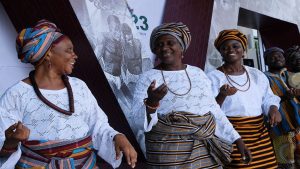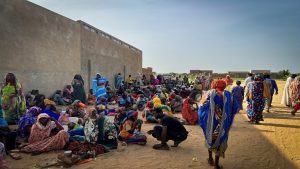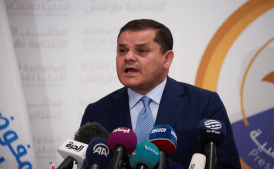Libya continues to be at a delicate and fragile juncture on its path to unity and stability through the ballot box.
That was the message delivered by the outgoing United Nations Special Envoy Jan Kubis in a briefing to the Security Council exactly one month ahead of planned presidential and parliamentary elections in the country.
Some 98 candidates have registered to run in the presidential race but a final candidates’ list is expected to be published within weeks once the country’s electoral commission has completed its vetting and appeals process.
More than 2.8 million of the country’s 7 million people are registered to vote.
After the country descended into chaos in the aftermath of the NATO-led ouster of former leader Muammar Gaddafi’s in 2011 and a subsequent war between two major sides that pitted the UN backed Government of National Accord against renegade commander Khalifa Haftar’s Libyan National Army, a ceasefire reached in 2020 has largely held prompting stakeholders to push for.
Kubis says, “I echo the call on all Libyan stakeholders and candidates to respect their commitments towards holding elections on 24 December 2021, to publicly commit to respecting the rights of their political opponents before, during and after the elections, refrain from using hate or revenge speech and threats, incitement to violence and boycott, to accept the results of the elections, and to uphold their commitment to the Code of Conduct prepared by the HNEC (High National Election Commission).”
But Kubis highlighted that while planning towards elections continue, vocal opposition to the poll persists with some leaders and constituencies questioning the legality of electoral laws while noting that conditions in the country are less than desirable for the holding of elections.
He also flagged as a grave concern the continued presence of foreign fighters in the country in violation Council resolutions, high rates of arbitrary and unlawful detention while detainees – often migrants or refugees – are subjected to torture and sexual violence among other human rights abuses.
Complicating efforts in the country, the UN on Tuesday confirmed Kubis’ resignation less than a year into his role as special envoy.
He was appointed in January this year after his predecessor Ghassan Salame quit in March last year due to health and stress-related reasons associated with the job
. Kubis told the Council that he’d offered to stay as special envoy for a transitional period to ensure business continuity but that the Secretary General accepted his departure, effective December 10th – two weeks before the poll.
This week, Muammar Gaddafi’s son announced that he is running for Libya’s presidency:






